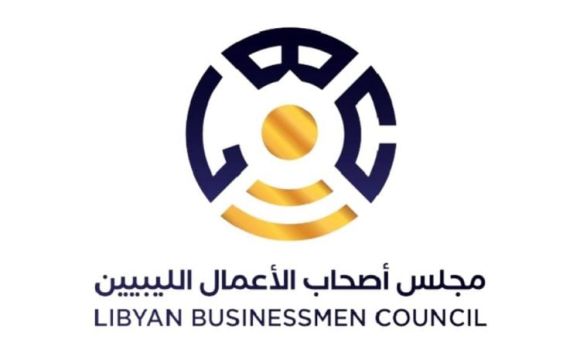Training in Libya: Full Guide to Workforce Development

As Libya continues its journey towards stability and economic growth, investing in training becomes essential for building a skilled and adaptable workforce. Effective training programs empower individuals, enhance expertise, and drive innovation, addressing both current challenges and future opportunities within the nation.
Fostering access to quality training not only boosts personal development but also strengthens Libya’s competitive edge in key industries. By focusing on sectors such as oil and gas, renewable energy, and technology, and embracing modern training methodologies, Libya can cultivate a workforce equipped to meet the demands of a dynamic global market.
Addressing these training needs is pivotal for sustainable progress, enabling businesses to thrive and contributing to the nation’s prosperity. Qabas Consulting and Training, with its extensive experience, plays a crucial role in shaping these efforts, ensuring that Libya’s workforce is prepared to navigate and excel in a rapidly changing global economy.
Table of Contents
Overview Of Training In Libya
Libya’s training landscape has evolved significantly in recent years, aligning with the nation’s push towards economic diversification and stability. The government has established frameworks to support workforce development, emphasising sectors such as oil and gas, renewable energy, and technology. Regulatory measures mandate continuous professional development, ensuring that industries maintain competitive standards and meet international benchmarks.
Educational institutions collaborate with industry leaders to design curricula that address current market demands. Technical and vocational training centres play a crucial role in equipping individuals with practical skills, enhancing employability and fostering innovation. These centres often implement modern training methodologies, including e-learning platforms and hands-on workshops, to accommodate diverse learning preferences and increase accessibility.
In response to the dynamic global market, businesses in Libya seek specialised training to navigate operational challenges and mitigate risks. Qabas Consulting & Training offers expertise in operations, risk management, and strategic planning, supporting companies in adapting to changing environments. By providing tailored training programs, Qabas helps organisations build resilient and skilled workforces capable of driving growth and sustaining long-term success.
The legal framework governing training initiatives includes policies that incentivise private sector participation and foreign investment in education. Compliance with international standards is enforced to ensure quality and relevance, fostering a culture of continuous improvement and professional excellence. Historical investments in education and training have laid a strong foundation, enabling Libya to leverage its human capital effectively in pursuit of economic prosperity.
Public-private partnerships further enhance training opportunities, facilitating resource sharing and knowledge exchange between stakeholders. These collaborations contribute to the development of comprehensive training ecosystems that support both individual career advancement and national economic objectives. By aligning training strategies with Libya’s broader development goals, the nation positions itself to harness its potential and achieve sustainable progress.

Types Of Training Programmes
Libya offers a diverse range of training programmes designed to meet the evolving demands of its workforce. These programmes cater to various skill levels and professional needs, ensuring that individuals and businesses can access relevant and effective training solutions.
Vocational Training
Vocational training in Libya focuses on equipping individuals with practical skills essential for specific trades and industries. Programmes cover sectors such as construction, automotive repair, hospitality, and information technology. These courses often include hands-on workshops and apprenticeships, allowing participants to gain real-world experience. Technical and vocational training centres collaborate with industry experts to develop curricula that align with market requirements. By emphasising skill-based learning, vocational training supports Libya’s key industries, enhancing productivity and fostering economic growth.
Professional Development
Professional development programmes aim to enhance the expertise of individuals in various professional fields. These programmes include advanced training in areas like project management, leadership, risk assessment, and strategic planning. Continuous professional development ensures that professionals remain competitive and adept at navigating the complexities of a globalised marketplace. Organisations such as Qabas Consulting & Training provide specialised courses tailored to the needs of different industries, helping professionals stay updated with the latest best practices and regulatory standards. By investing in professional development, Libya cultivates a knowledgeable and capable workforce ready to drive innovation and efficiency.
Leading Training Providers
Libya’s training landscape features both government-led initiatives and robust private sector offerings, fostering a comprehensive framework for workforce development.
Government Initiatives
The Libyan government has established several frameworks to support workforce development. Key initiatives include:
- National Vocational Training Authority (NVTA): Oversees vocational education programmes across various sectors.
- Labour Law No. 11 of 2010: Regulates employment standards and training requirements for businesses.
- Libyan Educational Reform Plan (LERP): Integrates modern training methodologies into the national education system.
- Public-Private Partnerships (PPPs): Facilitate collaboration between government bodies and private entities to enhance training opportunities.
These initiatives aim to align training programmes with national economic objectives, ensuring that the workforce meets industry standards.
Private Sector Offerings
Private sector training providers play a crucial role in Libya’s workforce development. Notable offerings include:
- Qabas Consulting & Training: Specialises in operations, risk management, strategy, and customised training programmes, assisting clients in navigating the globalised market.
- Libyan Technical Institutes: Provide hands-on training in construction, automotive repair, and information technology.
- Industry-Specific Programmes: Focus on sectors such as oil and gas, renewable energy, and hospitality, developed in collaboration with industry experts.
- E-Learning Platforms: Offer flexible learning options, enabling continuous professional development through online courses and virtual workshops.
These providers ensure that training programmes are relevant and tailored to the evolving demands of the market, thereby enhancing workforce competency and adaptability.
Collaborative Efforts
Collaboration between government and private sector enhances the effectiveness of training programmes. Examples include:
- Joint Curriculum Development: Educational institutions and businesses work together to create curricula that address current industry needs.
- Apprenticeships and Internships: Facilitate practical training opportunities, bridging the gap between education and employment.
- Certification Standards: Align training certifications with international standards, ensuring that Libyan professionals remain competitive globally.
Such collaborative efforts contribute to a skilled and knowledgeable workforce, driving innovation and economic growth in Libya.
Qabas Consulting & Training’s Contribution
Qabas Consulting & Training stands out as a leading authority in the Libyan training sector. Based in Tripoli, it offers specialised programmes in operations and risk management, tailored to meet the specific needs of various industries. By leveraging extensive expertise and industry partnerships, Qabas ensures that its training solutions are both effective and aligned with global best practices.
Through its comprehensive training services, Qabas Consulting & Training supports the development of a resilient and proficient workforce, essential for Libya’s sustainable progress.
Future Prospects
The future of training in Libya looks promising, with increasing investments in both government and private sectors. Anticipated developments include:
- Expansion of E-Learning: Greater integration of digital tools to facilitate remote and flexible learning.
- Advanced Skill Programmes: Introduction of courses in emerging technologies and innovative practices.
- Enhanced Public-Private Collaborations: Strengthening partnerships to expand training accessibility and quality.
These prospects indicate a continual improvement in Libya’s training infrastructure, contributing to long-term economic stability and growth.
Challenges And Opportunities
Libya’s training sector faces several challenges that impede workforce development. Limited infrastructure restricts the availability of modern training facilities, particularly in remote regions. The scarcity of qualified trainers results in gaps in skill transmission, affecting the quality of education. Funding constraints hinder the expansion of vocational and professional programmes, limiting access for many individuals. Additionally, aligning training programmes with market demands remains a persistent issue, often leading to mismatches between skills acquired and industry needs. Navigating legal frameworks, such as Labour Law No. 11 of 2010, adds complexity to the implementation of training initiatives, requiring compliance with stringent regulations.
Despite these challenges, significant opportunities exist to enhance Libya’s training landscape. Government initiatives, including the National Vocational Training Authority (NVTA) and the Libyan Educational Reform Plan (LERP), provide robust support for workforce development. Key industries like oil and gas, renewable energy, and technology present avenues for specialised training programmes, fostering sector-specific expertise. Public-private partnerships (PPPs) play a crucial role in expanding training opportunities, enabling collaboration between educational institutions and industry leaders. The rise of e-learning platforms and modern training methodologies, such as hands-on workshops, offer flexible and scalable solutions to address skill gaps. Moreover, the increasing demand for specialised training in operations, risk management, and strategy aligns with the expertise of leading firms in the region.
Qabas Consulting & Training exemplifies the potential within Libya’s training sector by offering tailored programmes that address both current challenges and future opportunities. As a prominent consulting firm in North Africa, Qabas leverages its extensive experience to support clients in navigating a dynamic and globalised landscape. Through strategic collaborations and innovative training solutions, Qabas contributes to the development of a skilled workforce, essential for Libya’s economic growth and stability.
| Challenge | Description |
|---|---|
| Limited Infrastructure | Restricted access to modern training facilities |
| Scarcity of Qualified Trainers | Insufficient number of skilled educators |
| Funding Constraints | Limited financial resources for expanding programmes |
| Alignment with Market Needs | Mismatch between skills taught and industry requirements |
| Legal Framework Navigation | Complexity in complying with Labour Law No. 11 of 2010 |
| Opportunity | Description |
|---|---|
| Government Initiatives | Support from NVTA and LERP for workforce development |
| Key Industry Growth | Expansion in oil, gas, renewable energy, and technology sectors |
| Public-Private Partnerships | Collaboration between educational institutions and industries |
| E-Learning Expansion | Adoption of online platforms and flexible training methods |
| Specialized Training Demand | Increased need for expertise in operations and risk management |
Impact Of Training Programmes
Training programmes in Libya significantly contribute to the nation’s economic development and workforce enhancement. By providing targeted education and skill development, these programmes address the specific needs of key industries such as oil and gas, renewable energy, and information technology. This specialised training ensures that Libyan professionals possess the competencies required to excel in their respective fields, thereby increasing productivity and fostering innovation.
The implementation of comprehensive training initiatives directly influences employment rates. Individuals equipped with relevant skills are more likely to secure stable employment, reducing unemployment and underemployment within the country. Additionally, these programmes support entrepreneurship by nurturing the capabilities of aspiring business owners, enabling them to establish and manage successful enterprises that drive economic growth.
Adherence to legal frameworks and industry standards is another critical impact of training programmes. Through compliance-focused training, professionals gain a thorough understanding of national and international regulations, ensuring that Libyan businesses operate within legal parameters. This compliance not only mitigates risks but also enhances the reputation of Libyan companies in the global market, facilitating international partnerships and investments.
The advancement of technical and vocational skills through training programmes also plays a pivotal role in modernising Libya’s industrial sectors. By incorporating the latest technologies and methodologies into training curricula, these programmes enable the workforce to adopt innovative practices. This modernization leads to improved efficiency, higher quality outputs, and the capacity to meet evolving market demands.
Public-private partnerships further amplify the impact of training initiatives. Collaborative efforts between government bodies and private sector entities ensure that training programmes are aligned with national economic objectives and industry requirements. These partnerships facilitate the sharing of resources, expertise, and best practices, enhancing the overall effectiveness of training efforts.
Qabas Consulting & Training exemplifies the role of private sector organisations in this ecosystem. As a leading consulting firm in North Africa, Qabas specialises in operations, risk management, strategy, and training. Based in Tripoli, it assists clients in navigating a dynamic and globalised landscape by offering tailored training solutions that address both current challenges and future opportunities.
The cumulative effects of these training programmes contribute to a robust and resilient economy. A skilled workforce attracts foreign investment, promotes sustainable development, and positions Libya as a competitive player on the international stage. Through continuous professional development and strategic training initiatives, Libya ensures long-term economic stability and growth.
| Impact Area | Description |
|---|---|
| Economic Development | Enhances productivity and fosters innovation in key industries. |
| Employment Rates | Increases job opportunities and reduces unemployment through skill training. |
| Entrepreneurship | Supports business creation and management capabilities. |
| Legal Compliance | Ensures adherence to national and international regulations. |
| Industrial Modernisation | Incorporates advanced technologies and methodologies into the workforce. |
| Public-Private Partnerships | Aligns training with economic objectives and industry needs. |
Through these multifaceted impacts, training programmes serve as a cornerstone for Libya’s ongoing stability and prosperity, leveraging both government initiatives and the expertise of private sector leaders like Qabas Consulting & Training.

Conclusion
Training plays a pivotal role in Libya’s journey towards economic stability and growth. By equipping individuals with essential skills and fostering innovation, the nation is building a workforce capable of meeting both current and future challenges.
The collaborative efforts between government initiatives and private sector providers create a robust framework for sustainable development. As Libya continues to invest in key industries and modern training methodologies, the prospects for a skilled and competitive workforce remain strong. This commitment not only enhances productivity but also positions Libya favorably in the global market, driving long-term prosperity.
Frequently Asked Questions
Why is investing in training crucial for Libya’s stability and economic growth?
Investing in training empowers individuals, enhances expertise, and drives innovation. These factors are essential for addressing Libya’s current challenges and seizing future opportunities. A skilled workforce supports key industries like oil and gas, renewable energy, and technology, fostering economic growth and stability. Effective training programmes ensure that Libya can develop professionals ready to compete in the global market, contributing to sustainable progress and national prosperity.
Which key industries are targeted by Libya’s training programmes?
Libya’s training programmes focus on vital sectors such as oil and gas, renewable energy, and technology. By targeting these key industries, the programmes aim to enhance expertise and drive innovation. This strategic focus ensures that the workforce is well-equipped to meet market demands and support the nation’s economic objectives. Additionally, sectors like construction, automotive repair, hospitality, and information technology also receive attention to provide a comprehensive range of skills.
How is the Libyan government supporting workforce development?
The Libyan government supports workforce development through initiatives like the National Vocational Training Authority (NVTA), Labour Law No. 11 of 2010, and the Libyan Educational Reform Plan (LERP). These frameworks promote continuous professional development and align training programmes with national economic goals. Public-private partnerships further enhance training opportunities by collaborating with industry leaders to create relevant curricula and certification standards, ensuring that training initiatives meet market needs and improve workforce competitiveness.
What role does the private sector play in Libya’s training landscape?
The private sector is pivotal in Libya’s training landscape, with providers like Qabas Consulting & Training and Libyan Technical Institutes offering specialised programmes. These organisations deliver hands-on training and develop curricula in collaboration with industry experts, ensuring alignment with market requirements. Private sector involvement enhances the effectiveness of training initiatives, provides practical skills through apprenticeships and workshops, and helps Libyan professionals remain competitive globally by adhering to international standards.
What challenges does Libya face in developing its training sector?
Libya faces several challenges in developing its training sector, including limited infrastructure, a shortage of qualified trainers, funding constraints, and difficulties in aligning training with market demands. Additionally, navigating complex legal frameworks adds to the complexity of implementing training initiatives. These obstacles hinder the effective delivery of training programmes, but government support and the rise of e-learning platforms present opportunities to overcome these challenges and advance workforce development.
What opportunities exist for training in Libya’s future?
Opportunities for training in Libya include government support through initiatives like the NVTA and LERP, growth in key industries, and the expansion of e-learning platforms. Advances in emerging technologies and enhanced public-private collaborations also present prospects for developing advanced skill programmes. These opportunities can help address current challenges, foster innovation, and contribute to long-term economic stability and growth by creating a skilled and adaptable workforce.
How do training programmes impact Libya’s economic development?
Training programmes significantly impact Libya’s economic development by equipping professionals with the necessary skills to excel in their fields. This leads to increased productivity, innovation, and efficiency within key industries. Skilled workers are more likely to secure stable employment, reducing unemployment rates and supporting entrepreneurship. Additionally, adherence to international standards through compliance-focused training enhances Libya’s reputation globally, attracting foreign investment and facilitating international partnerships.
What are the future prospects for training in Libya?
The future of training in Libya looks promising with the anticipated expansion of e-learning, the development of advanced skill programmes in emerging technologies, and strengthened public-private partnerships. These advancements will contribute to a more robust and adaptable workforce, aligning with national economic objectives. Continued investment in training infrastructure and methodologies will support sustainable economic growth, enhance workforce competitiveness, and ensure long-term stability and prosperity for Libya.
Championing Synergistic Growth
The Euro-Libyan Trade Center (ELTC), is a non-partisan, non-profit trade promotion agency working in cooperation with the GUCC to strengthen economic relations between Europe and Libya.
ELTC strategically positions itself as an enabler of transcontinental economic activities, offering a structured platform for entities with vested regional commercial interests. We are dedicated to enhancing operational capacities, broadening market access, and heightening the competitive index of enterprises within the region.
For tailored organisational strategy consultation, kindly reach us at +44 207 193 5556 or submit an inquiry via the provided contact form.
Follow us on:
- Twitter: https://twitter.com/eurolibyan
- LinkedIn: https://www.linkedin.com/company/eurolibyan
Latest News & Publications
Ready to Elevate Your Business?
At the forefront of our mandate to drive economic development, we are dedicated to fostering meaningful partnerships with regional stakeholders, businesses, and professionals across diverse industries, charting a course towards a brighter, shared future.
For inquiries, please complete the form below or reach out to us at +44 207 193 5556



